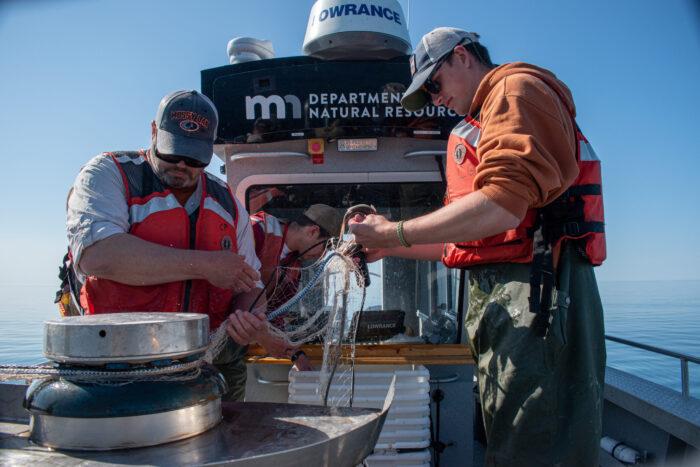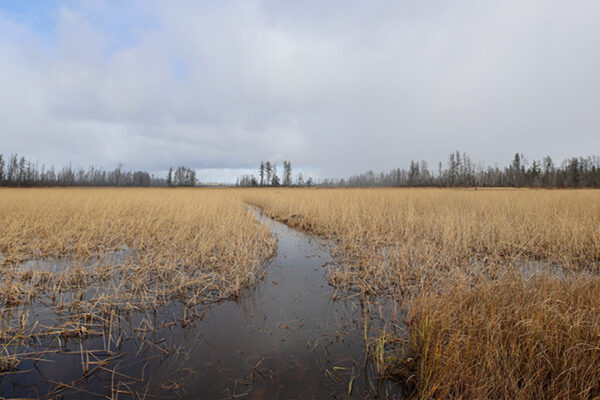A journey on Lake Superior to study lake trout along the North Shore
WTIP Outdoor News Podcast hosts Kalli Hawkins and Joe Friedrichs were on Lake Superior in mid-July watching staff from the DNR conduct the juvenile lake trout assessment for 2022.
After nearly being wiped out in the 1950s, the Lake Superior lake trout fishery has bounced back in a big way during the past 70 years.
The decline of lake trout in Lake Superior was caused by overfishing and nonnative sea lamprey. After a decades-long effort to restore lake trout, there are now so many naturally reproducing fish in Minnesota waters on the Big Lake that the DNR no longer stocks hatchery fish.
Featured in this week’s episode of the WTIP Outdoor News Podcast are staff from the DNR’s Lake Superior Fisheries Office in Duluth. On board the 31-foot boat that left from the Grand Marais Harbor July 15 were:
— Josh Blankenheim, the large lakes biologist for the DNR
–Chris Palvere, DNR fisheries technician
–Wyatt Hiltner, fisheries intern
They joined the Outdoor News Podcast on this episode, most of which was recorded on Lake Superior near Grand Marais.
On a beautiful sunny morning along the North Shore, the researchers recorded biological information from each of the 27 fish they captured in the net. After returning to Grand Marais, they noted fish length and weight, sea lamprey wounds, and fin-clips of stocked fish.
The netters also recorded the number of lake trout caught and the length of gill net fished. This particular assessment, Blankenheim said, was the juvenile lake trout assessment.
“The (net) is very small. It’s an inch and a half, two inch and two-and-a-half-inch stretch measure mesh. So we’re only looking to catch fish that are basically less than 17 inches, we’re not going to see you know, big, 10 and 15-pound fish in this survey,” Blankenheim said.
It took about 50 years for wild lake trout to recover from overfishing and sea lamprey predation in Minnesota, according to the DNR. And while the assessment in 2022 did not show a huge spike in the population, there was nothing to be concerned about either, Blankenheim said.
Hear the full story in the audio below.














